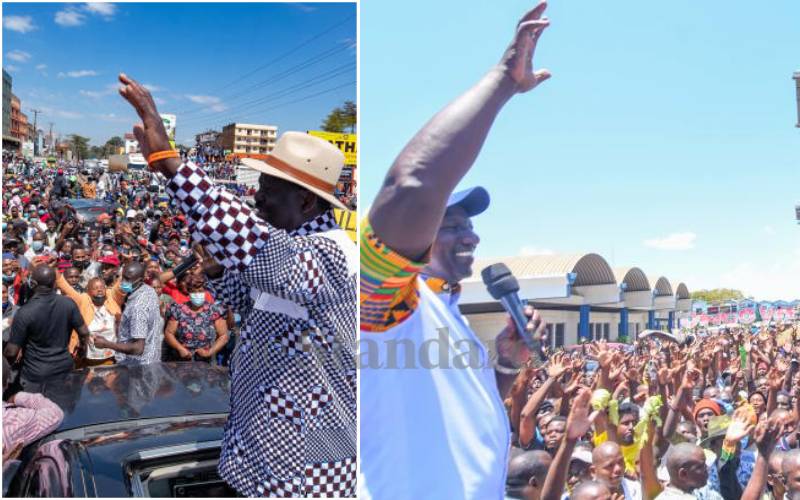×
The Standard e-Paper
Fearless, Trusted News

Raila Odinga (left) and DP William Ruto sides are especially excited by the crowds. [File, Standard]
Since 2018, Deputy President William Ruto’s followers have called him The Fifth. Recently, this 2022 key term has been picked up by Raila Odinga's supporters. It is a term that has no political copyright among presidential hopefuls.